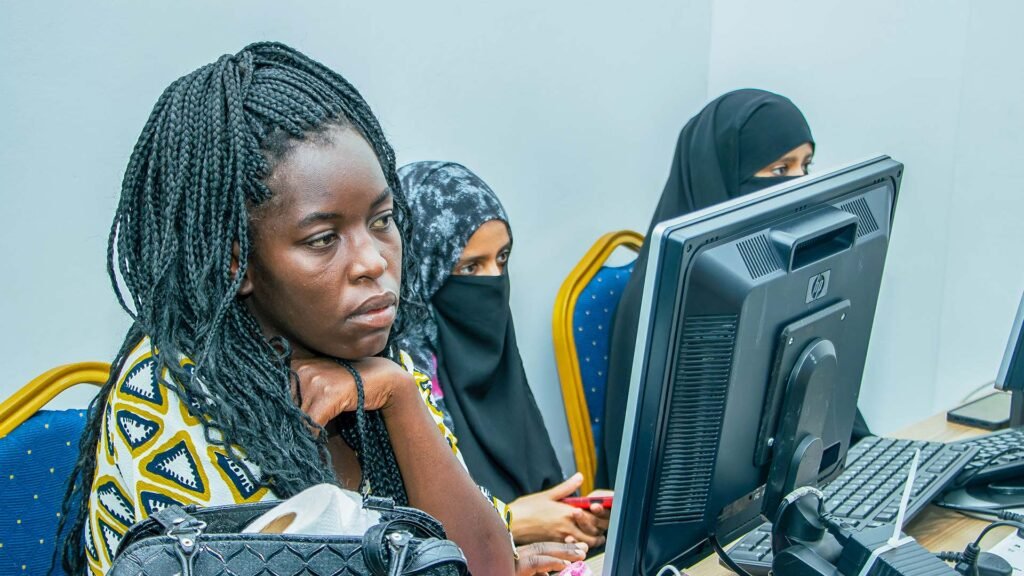Bridging the Digital Divide: How the Maudhui Digiti Project is Empowering Nairobi’s Underserved Communities


As digital technology becomes an increasingly vital part of our daily lives, access to digital content and platforms is critical for economic and social development. In Nairobi, the Maudhui Digiti Project is making significant strides in addressing the digital divide, particularly for underserved and excluded communities. This initiative, spearheaded by the African Centre for Women, Information and Communications Technology (ACWICT) and the Online Professional Workers Association of Kenya (OPWAK), aims to improve digital employability by increasing access to locally relevant and development-oriented digital content.
Understanding the Digital Needs of Nairobi’s Communities
The Maudhui Digiti Project is rooted in a comprehensive understanding of the barriers that prevent Nairobi’s residents, especially women and girls, from fully benefiting from digital opportunities. Through a user needs assessment conducted across Nairobi County, the project identified several key obstacles to digital inclusion, including limited internet accessibility, high costs of digital services, and a lack of digital literacy. These barriers have disproportionately affected women, further entrenching gender inequalities in access to digital resources.
The project’s findings revealed that a significant portion of Nairobi’s population remains disconnected from the digital economy due to these barriers. For instance, while the use of online government services like tax filing through iTax is becoming more common, many still prefer to access services through Huduma Centres due to challenges associated with online platforms.

Empowering Communities Through Digital Literacy and Access
One of the core objectives of the Maudhui Digiti Project is to increase the capacity of Nairobi’s underserved communities to access and utilize locally relevant digital content. By focusing on digital literacy training and improving infrastructure, the project is empowering individuals to engage with digital platforms more effectively.
The project also highlights the importance of local content in digital platforms. Tailoring digital content to meet the specific needs of Nairobi’s communities ensures that the information is not only accessible but also relevant and beneficial. This approach has been particularly impactful in addressing gender disparities, as women have been given targeted opportunities to develop digital skills and access online work platforms.
Overcoming Barriers to Digital Inclusion
The Maudhui Digiti Project has identified critical success factors for enhancing digital inclusivity in Nairobi. These include providing ICT training opportunities, promoting cyber hygiene, and encouraging the use of local languages in digital content. By addressing these factors, the project is helping to create a more inclusive digital environment that supports the needs of all Nairobians.
Additionally, the project has shed light on the need for platforms that are user-friendly and accessible to those with limited digital skills. For example, the Ajira Digital platform has emerged as a popular choice among Nairobi’s online workers, offering a range of opportunities that are both accessible and relevant to the local context.
The Future of Digital Employability in Nairobi
As the Maudhui Digiti Project continues to evolve, its impact on Nairobi’s digital landscape is becoming increasingly evident. The project’s emphasis on addressing the unique needs of Nairobi’s underserved communities has paved the way for more inclusive digital growth, particularly in the realm of digital employability.
Moving forward, the project aims to build on its successes by scaling up digital platforms that have proven effective in empowering Nairobi’s residents. By continuing to focus on local content, digital literacy, and access, the Maudhui Digiti Project is setting a precedent for how digital initiatives can drive sustainable development in urban environments.
Reference
The content of this blog post is based on findings from the Maudhui Digiti Project User Needs Assessment Report on Digital Employability, prepared by the African Centre for Women, Information and Communications Technology (ACWICT) and the Online Professional Workers Association of Kenya (OPWAK) Consortium. The report was conducted under the UK Government’s Digital Access Program and submitted in June 2020.
This graduation ceremony was organised to award and celebrate all the young women who successfully completed the Covid-19 and Digital Employability programme […]
As the world grappled with the devastating effects of the COVID-19 pandemic, vulnerable communities, especially women from informal settlements and rural areas, […]
ACWICT, in partnership with the Global Give Back Sacco, embarked on a transformative journey to uplift the lives of marginalized young women […]